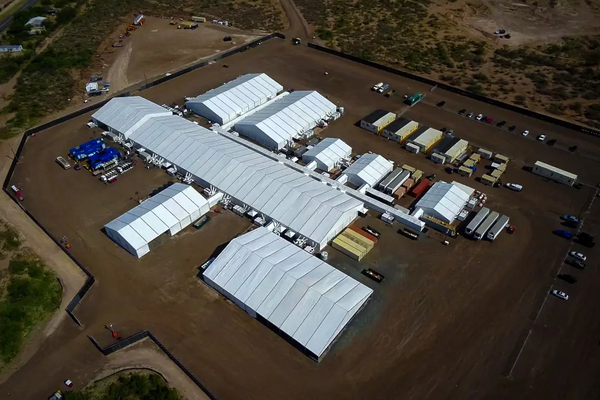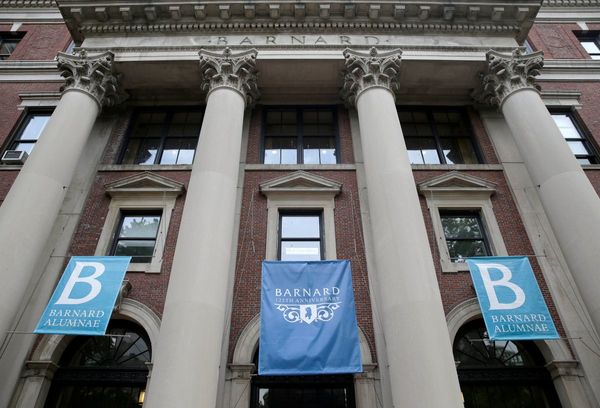Cathie Wood’s Ark Investment Management took advantage of Tesla’s (TSLA) recent decline to buy more shares of the electric vehicle maker.
Ark Innovation ETF (ARKK), the company’s flagship fund, snatched 27,556 shares Monday, after grabbing 27,799 shares last Thursday. Adding those shares together, the total was recently worth $50.9 million with Tesla recently trading at $920 a share.
ARK Next Generation Internet ETF (ARKW) also bought 5,683 Tesla shares Thursday, recently worth $5.2 million.
These purchases represent Ark’s first acquisition of Tesla stock since June 2021, CNBC reports. In November and last month, Ark sold Tesla stock, with Wood stressing that she still likes the stock. It’s the No. 1 holding in Ark Innovation, accounting for 8.2% of the $13 billion funds.
Wood said in September that her base case for Tesla is $3,000 per share. "Our estimate for Tesla's success has gone up,” she told Yahoo Finance. “The main reason for that is their market share. Instead of going down from year-end 2017 to today, it has actually gone up fairly dramatically."
Tesla to Recall Nearly 54,000 Cars to Deactivate FSD; Musk's Derailed Promise of Self-Driving Cars by the end of 2022
Tesla recently had to recall nearly 54,000 cars to deactivate an advanced full self-driving feature, which is a big blow for Tesla -- and is likely to have repercussions for Musk's hopes and promises.
The recall includes all models combined, S, X, Y, 3 -- for a problem related to the Full Self-Driving Beta advanced driving assistant, according to a notice put online by National Highway Traffic Safety Administration.
Tesla will disable an FSD feature, which allows its cars to pass through intersections without having to come to a complete stop if there is no other car engaged or if there are no pedestrians.
This decision should undoubtedly have consequences on the promise of Musk to have Tesla cars driving themselves by the end of the year. Because it shines a little more spotlight on FSD, already in the sights of regulators.
At the fourth-quarter earnings call this past week, Musk said that Full Self-Driving systems were going to be an important source of revenue in the future. FSD Beta costs an additional $12,000, or a $199-a-month subscription.
But, Musk makes a lot of promises. His fans see his visionary side. His detractors, on the other hand, do not hesitate to point out that he almost never holds them.
"I would be shocked if we do not achieve full-self-driving safer than a human this year. I would be shocked," Musk said during Tesla's fourth-quarter earnings call.
He emphasized: "Being safer than a human is a low standard, not a high standard. People are often distracted, tired, texting. … It’s remarkable that we don’t have more accidents."
Musk Wants to Be a Car Salesman
Tesla, which started up just 19 years ago, will focus on profitability and efficiency in 2022, like any company.
Making people dream big is in a way the Musk method. When investors buy Tesla stock and propel the group into the select circle of companies with at least $1 trillion market capitalization, they are buying the promise that Tesla represents innovation in the automotive sector.
And how can we doubt it after Tesla has succeeded in less than two decades in pushing all car manufacturers to focus on the production of electric vehicles?
From General Motors (GM) to Ford (F), Volkswagen (VLKAF) , and Stellantis (STLA) everyone wants to build and offer electric vehicles. Even luxury groups like Bentley, Lamborghini, Ferrari (RACE), and Maserati promise electric models.
So it was only natural that when Musk announced that he would be taking part in Tesla's fourth-quarter earnings call on Jan. 26, everyone was expecting some spectacular announcements from the billionaire-visionary. Especially since Musk said last year that he would no longer participate in earnings calls.
"But much to the disappointment of his fans - and there are many - there was no wow moment. It was ordinary. As if Musk had lost his magic or was it a way to augur a new era for Tesla: a company like any other," writes TheStreet's Luc Olinga.
"We will not be introducing new vehicle models this year. It would not make any sense because we'll still be parts constrained," Musk announced upfront in his opening remarks. "We will, however, do a lot of engineering and tooling."
Too bad for those who were hoping for an entry-level Tesla at $25,000 or for those who already saw Tesla ridicule the pickups of other car manufacturers with the arrival of its Cybertruck. As for those who believed that the semi as we know it today was part of the antiques, they had to swallow their hopes.
The TeslaMic Sold out in Minutes
Chinese consumers this past week gave a massive sitting ovation to Tesla’s latest hot accessory, the TeslaMic, a wireless microphone that allows Tesla users to convert their electric car into a mobile karaoke machine.
The TeslaMic launched at a price of $188 a pop on its official Chinese website, sold out within minutes of its release. The microphones work with a Tesla software update also released Friday in China that includes karaoke tracks and videos.
The new product was so popular that the Tesla website to order it from reportedly crashed for many hopeful Chinese karaoke fans. It was introduced as part of Tesla's ‘Chinese New Year’ software update.
TheStreet Quant Ratings rates Tesla as a Hold with a rating score of C+.
Nio Steps Up
Nio (NIO), a Chinese EV-maker, struggles in a way that all but one electric vehicle companies do. It's not Tesla and that means that it has a long way to go to meet expectations even if it has a high market cap (about $39 billion as of the morning of Feb. 1).
Tesla has set a high bar. It's an innovative company that has backed up its bravado (or at least CEO Elon Musk's bravado) with actual vehicle sales. The EV leader has hit roughly one million vehicles delivered per year pace and that puts Nio well behind its rival.
That's not an easy number to reach, but Nio's latest production numbers at least show progress.
Nio delivered 9,652 vehicles in January, marking a 33.6% year-over-year increase led by the company's ES6 five-seater high-performance smart electric SUV.
The majority of sales in the month came from the ES6 and the company's EC6 electric coup SUV, which saw 2,874 deliveries.
To help push adoption, Nio says it has been accelerating the deployment of its power network. As of January 31, the Shanghai-based company has built 836 power swap stations, 3,766 power chargers, and 3,656 destination chargers.
Nio is gearing up to make a run at the U.S. market and is reportedly hiring a local team of experts in the country, a media report said.
If Nio has ambitions to enter the U.S., the world's second-largest EV market, it will have to play catch up to Tesla and Ford.
Ford became No. 2 for electric vehicle sales in 2021, led by its Mustang Mach-E, which sold 27,140 vehicles in 2021, making it the nation's second-best-selling full-electric SUV behind Tesla's Model Y.
General Motors currently only sells two electric vehicles in the U.S., the Chevrolet Bolt and the Bolt EUV.
Earlier this month, the GM introduced an electric Chevrolet Silverado pickup truck.
In addition to legacy carmakers looking to transform their gas-powered fleets into an electric model, the U.S. EV market also has startups looking to topple Tesla.
Lucid (LCID) has managed to garner a $70 billion market cap despite having only begun to deliver cars in the dozens in October.
Lucid CEO Peter Rawlinson says he expects to produce about half as many vehicles as Tesla did in 2021 about eight years from now.
Here are more of the top electric vehicle stocks to watch this week:
Lucid
Lucid, a would-be Tesla competitor, has a market cap of nearly $70 billion and essentially no sales. Electric vehicles bring a valuation premium that's substantial and Lucid gets an awful lot of benefit of the doubt from investors. It may not need to reach the millions of vehicles sold by traditional automakers to justify its current valuation, but it's currently trading at a much higher premium per car it has actually sold than Tesla.
Lucid has achieved its valuation without recognizing any revenue from selling vehicles. It did begin delivering vehicles in October, but the numbers were in the dozens, or maybe even the hundreds. Lucid does have plans to ramp up its production, and CEO Peter Rawlinson seemed excited about the interest in the company's first vehicle, Lucid Air. It's worth noting that Lucid requires a $3,000 deposit to reserve a Lucid Air. That's a much bigger commitment than the $100 Tesla asks for when people reserve a Cybertruck.
TheStreet Quant Ratings does not have a rating for Lucid.
Ford
Ford said this past week that its early investment in Rivian Automotive (RIVN) would add around $8.2 billion to its fourth-quarter bottom line. In an investor update ahead of its formal earnings release, Ford said gains from Rivian's November IPO would be booked as a special item over the three months ending in December.
Ford invested $500 million in Rivian in 2019, building that to $1.2 billion in the following years, and has a total stake of around 12% in the Irvine, California-based EV group. Rivian shares, once valued at more than $100 billion, now have a market cap at just under $66 billion.
TheStreet Quant Ratings rates Ford as a Buy with a rating score of B.
General Motors
General Motors has a plan to catch Tesla and sell 1 million electric vehicles by 2025, but based on its current pace, the company has a lot of ground to make up. GM recently announced that it is investing $7 billion in four Michigan manufacturing plants as part of the car maker's plan to transform its output into an electric vehicle fleet as the company looks to keep up with rival Tesla. But after the company delivered just 26 electric vehicles in the fourth quarter, GM has a long way to go to convince investors that it can catch up to its rivals.
The Detroit-based company says its investment will create 4,000 new jobs and retain 1,000 others while "significantly increasing" battery cell and electric truck manufacturing capacity. GM will invest $4 billion to convert its assembly plant in Orion Township, Mich. to produce electric trucks. In December, the company said it intends to spend over $3 billion to manufacture EVs as it looks to become the EV market leader in North America by 2025. Time will tell whether GM will be able to "absolutely" catch Tesla in EV sales by 2025 as has been promised by Barra.
TheStreet Quant Ratings rates General Motors as a Buy with a rating score of B.
Rivian
Electric vehicle maker Rivian said its chief operating officer, Rod Copes, has left the company. Separately, it reported production figures in line with lowered guidance it offered last month. The Amazon-backed (AMZN) company said in emailed comments that “Rod began a phased retirement from Rivian several months ago, affording the team continuity as we moved toward production ramp.” Copes’ “duties have been absorbed by our leadership team,” the company added.
In a recent statement, Rivian said it had produced 1,015 vehicles by the end of 2021. It said it had delivered 920. And, the company's shares briefly dipped below their November initial public offering price. That came after Amazon announced that it will buy electric delivery vans from Stellantis, bypassing Rivian, its original electric-vehicle purchase partner. Amazon has ordered 100,000 Rivian vans to be delivered by 2030, and it owns a 20% stake in the company. The agreement with Stellantis doesn't represent a slight toward Rivian, Amazon said.
TheStreet Quant Ratings does not have a rating for Rivian.
Nio
Nio has made some moves recently, including listing a number of jobs that suggest it plans to enter the U.S. market in 2022. The company also said that it will enter Germany, Netherlands, Denmark, and Sweden in 2022, and reach 25 countries by 2025, at its annual Nio Day event.
Nio delivered 25,034 vehicles in the fourth quarter and 91,429 in 2021, and the electric carmaker expects to begin delivering the ET7, a premium electric sedan, in March. And two weeks ago, Nio unveiled the ET5, a midsize electric sedan, and said it would begin delivering it to customers in September. The company's deliveries rose 50% in December and 44% in the fourth quarter and they doubled for the full year. In December, Nio reported, 10,489 electric vehicles were delivered, up 50% from a year earlier.
TheStreet Quant Ratings rates Nio as a Sell with a rating score of D.







